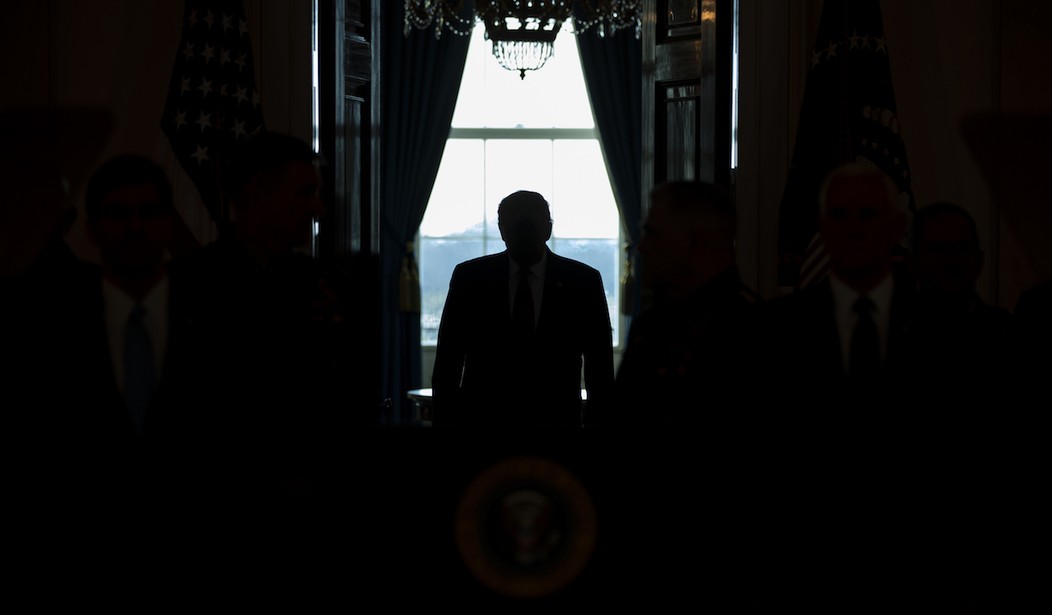It is widely expected that when President Trump returns to the White House in January, he will re-implement his strategy of “maximum pressure” in dealing with the Islamic Republic of Iran. This is as it should be, especially given recent reminders of Iran’s escalating nuclear activities and the looming threat of full-scale war between Iran and Israel. But the Trump administration should understand, as should all Western leaders, that to truly achieve maximum pressure on the Iranian regime, they must look beyond economic sanctions and diplomatic isolation and aim to increase the pressure that the government is already facing domestically from its own people.
When protests over the September 2022 killing of Mahsa Aminiby Iran’s morality police turned into a nationwide uprising, it was generally understood to be the greatest challenge to the mullahs’ hold on power since the 1979 revolution. The uprising was ultimately suppressed through the killing of 750 protesters and the arrest of approximately 30,000. Still, public activism has persisted ever since, often giving voice to explicit calls for regime change. Those calls have, however, gone unrecognized by far too many Western policymakers, while there are even fewer who recognize that those calls are backed up by an organized opposition movement with a concrete plan for empowering a democratic alternative to the mullahs’ dictatorship.
A number of those policymakers who do recognize the situation took part in a conference this past week at the European Parliament, where the President-elect of the National Council of Resistance of Iran (NCRI) illustrated the scale of widespread opposition to the clerical regime and the details of the transition.
The NCRI "comprises 457 members from a broad range of political backgrounds, with women representing over 50 percent of its membership, and it champions a comprehensive program that advocates for freedoms and women's rights, autonomy for ethnic groups, equality between Shia and Sunni Muslims, and protections for other religious minorities. It supports the separation of religion and state, the abolition of the death penalty, and a non-nuclear Iran, and has consistently promoted peace in the Middle East.”
Recommended
As a coalition of pro-democracy opposition groups, the NCRI is headed by the People’s Mojahedin Organization of Iran, which its leaders described as having “a 60-year history of battling the tyrannies of both the Shah and the mullahs.” The regime itself has acknowledged the People’s Mojahedin Organization of Iran (PMOI/MEK) as “its chief adversary and the decisive force behind every setback the regime has faced over the past 45 years”. It has accordingly targeted the group with a decades-long campaign of repression, including the systematic massacre of nearly 30,000 members and supporters during the summer of 1988 alone.
One might expect that killing on this scale would represent a significant setback to the opposition. Still, its support now includes “the families and survivors of the 100,000 victims who sacrificed their lives for freedom” over 45 years of conflict with the regime, as well as “hundreds of thousands of political prisoners.”
This enduring support has helped to give definite shape not only to the 2022 uprising but also to a half dozen uprisings in the years immediately preceding it. The anti-government sentiment behind those uprisings remains strong throughout Iranian society and represents a potent force for change. Western democracies, whose core values the Iranian people clearly share, could support and mobilize this force for change.
Maryam Rajavi described that force in her speech as an “Army of Freedom,” noting that it comprises a “profoundly discontented and incensed populace " and a network of “Resistance Units” affiliated with the PMOI. These units have helped organize large-scale protests and popularize the slogans that mark recent uprisings as movements for regime change. The NCRI, meanwhile, has shared the same message internationally and secured explicit endorsements from 34 Western legislative bodies, 137 former world leaders, and 80 Nobel laureates.
While working to impose maximum pressure, President Trump and his team must not overlook the importance of the Iranian people themselves. In case any of them are plagued by lingering concerns about the uncertain outcome of regime change, Mrs. Rajavi sought to address them at the European conference.
Her proposed role as transitional president is meant to last no more than six months, after which elections will be held to establish a Constituent Assembly to oversee the adoption of a new constitution. This roadmap for democratic change should also be recognized as a roadmap to the only definite solution to myriad global problems emanating from the Iranian regime.
























Join the conversation as a VIP Member